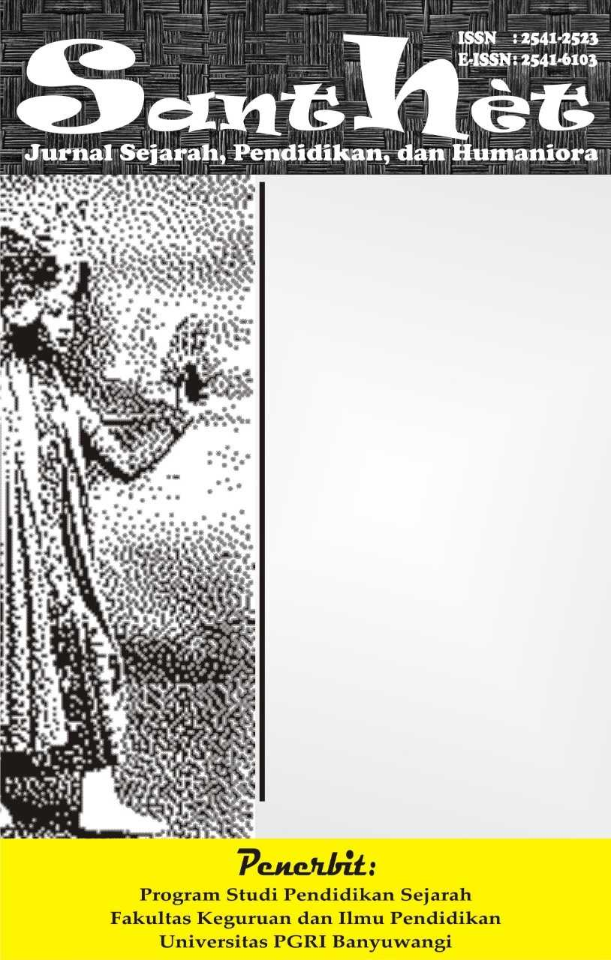THE EXTROVERT-INTROVERT PERSONALITY AND THEIR SECOND LANGUAGE ACQUISITION
DOI:
https://doi.org/10.36526/santhet.v8i2.4706Keywords:
Extrovert-Introvert, English, Second Language AcquisitionAbstract
Studying language requires more than a purely linguistic approach; it also necessitates examining the mental processes involved, which falls under the psychology domain. By addressing the question why some individual succeed in learning a second language while others fail, this study aimed at investigating how the extrovert-introvert personality acquired English as a second language. This study employed a descriptive qualitative approach through observations of the daily activities of six respondents at the Green Lion Bali Foundation and utilizeed a questionnaire to determine the respondents’ personality types. Interviews with colleagues were also used as a method of data triangulation for the research. The result of this study revealed that the influence of personality traits on English language acquisition, revealing different acquisition patterns. Extroverts, with their tendency toward openness, exhibit a more spontaneous language acquisition style. In contrast, introverts, who tended to be more reserved, display a more disciplined and structured language acquisition pattern, although they tended to communicate more slowly. Therefore individual’s tendency toward a dominant extroverted or introverted personality can significantly contribute to the creative learning process in English language acquisition.
References
Budiyono, H. (2012). Pembelajaran Keterampilan Menulis Berbasis Proses Menulis dan Teori Pemerolehan Bahasa. Pena: Jurnal Pendidikan Bahasa dan Sastra, 2(1).
Hassan, K. M., and Abbas, S. H. (2022). Extroversion/Introversion Personality Type and Language Profeciency: A Case Study of IRAQI EFL University Students. International Journal of Research in Social Sciences and Humanities, 10(1). https://doi.org/10.37648/ijrssh.v10i01.007
Eysenck, H. & Wilson, G. (1975). Know Your Own Personality. London: The Penguin Press
Ismail, M. (2013). Peranan Psikolinguistik dalam Pembelajaran Bahasa Arab. At-Ta’dib: Jurnal of Pesantren Education, 8(2). https://doi.org/10.21111/at-tadib.v8i2.508
Jung, C. G. (1956). The Collected Works of C. G. Jung. Pantheon Books, New York.
Kusuma, A. B. (2016). Pemerolehan Bahasa Pertama sebagai Dasar Pembelajaran Bahasa Kedua (Kajian Psikolinguistik). Al-Manar: Jurnal Komunikasi dan Pendidikan Islam, 5(2).
Mustoip, S., Ghozali, M. I. A., Fadhlullah, M. Z. F., and Assenhaji, S. A. Y. (2024). Influence of Introverted and Extroverted Personalities on English Learning Interaction for Elementary School Students. ELSYA: Journal of English Language Studies, 6(1). https://doi.org/10.31849
Nuraeni, L. (2015). Pemerolehan Morfologi (Verba) pada Anak Usia 3, 4, dan 5 Tahun (Suatu Kajian Neuropsikolinguistik). Tunas Siliwangi, 1(1). https://doi.org/10.22460/ts.v1i1p13-30.89
Syahid, A. H. (2014). Kepribadian Extrovert-Itrovert dan Pemerolehan Bahasa Kedua Perspektif Linguistik pada Santri Pondok Modern. Al Qalam, 30(2). http://dx.doi.org/10.32678/alqalam.v31i2.568
Triadi, I. B. (2017). Studi Kasus Analisis Bahasa pada Anak Usia 4 Tahun (Kajian Psikolinguistik). Jurnal Sasiondo Unpam, 4(1).





























